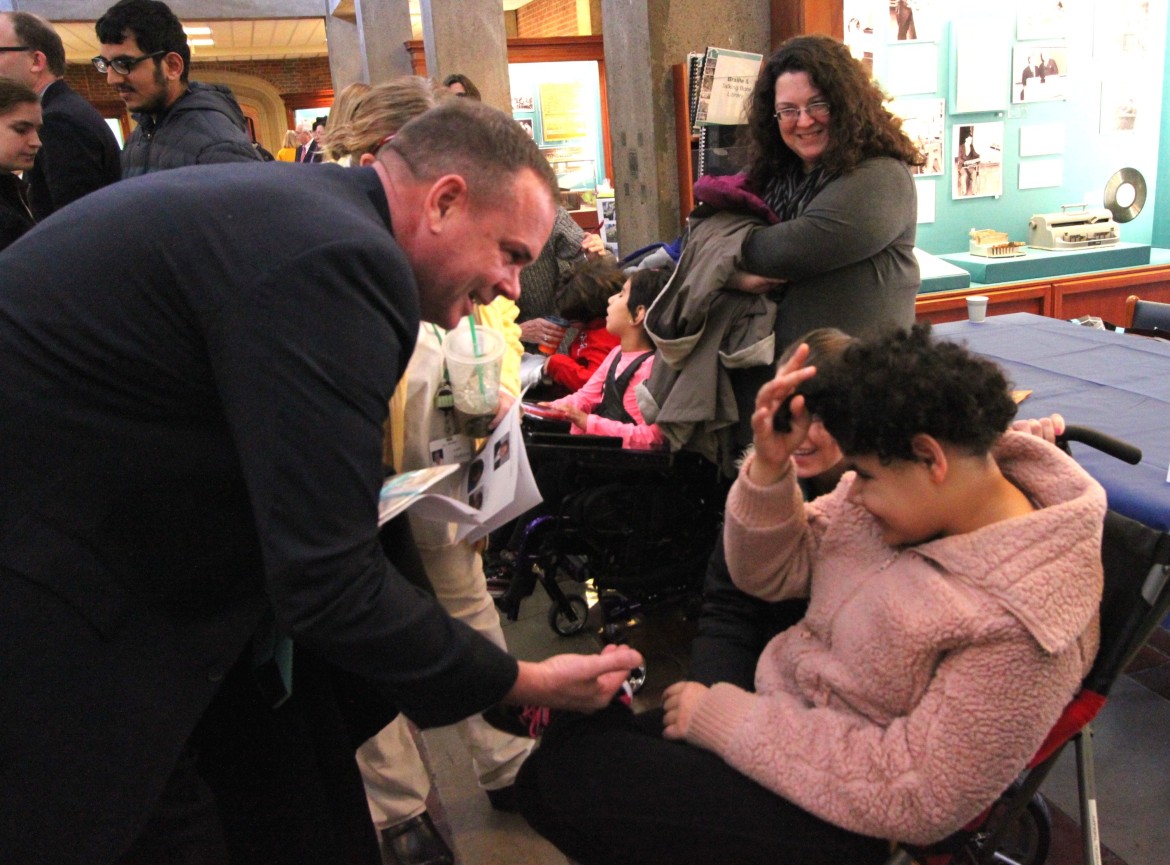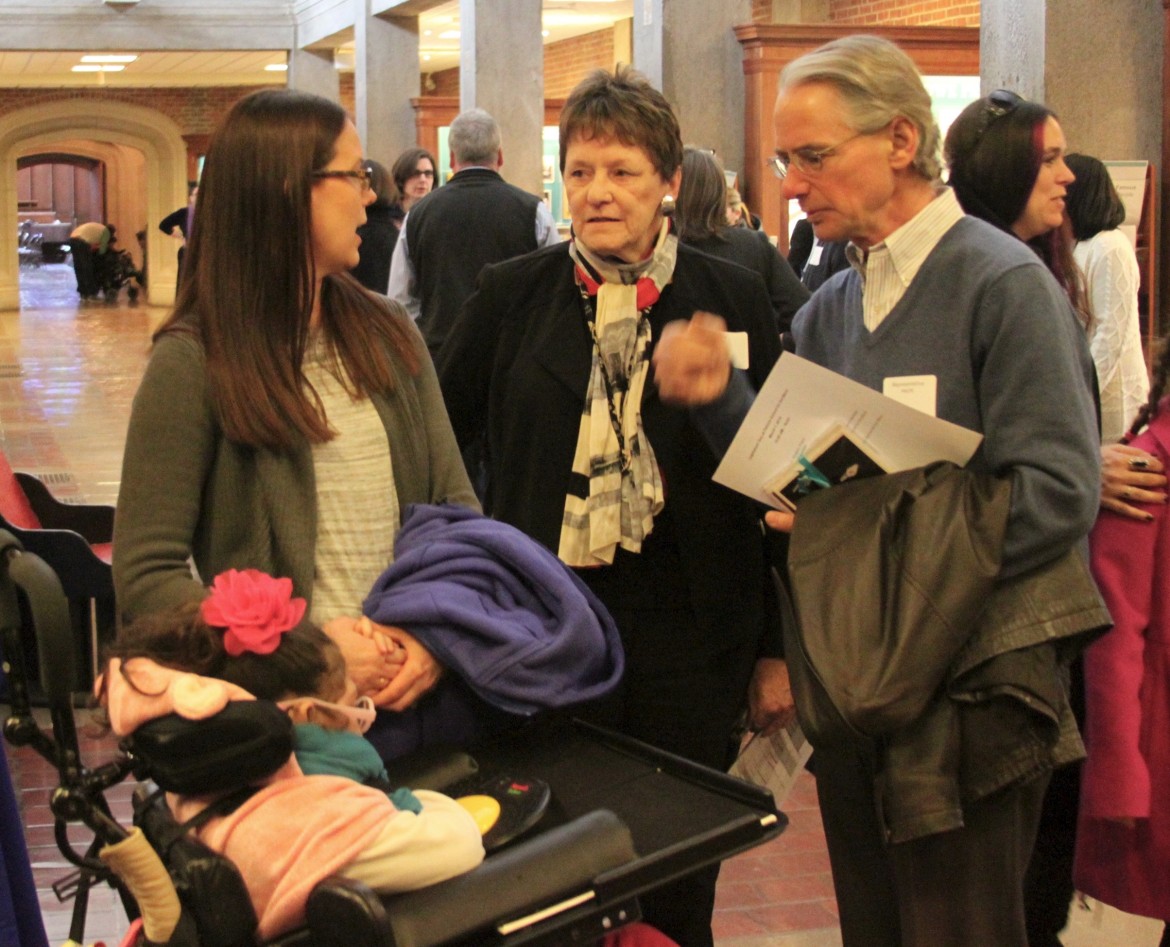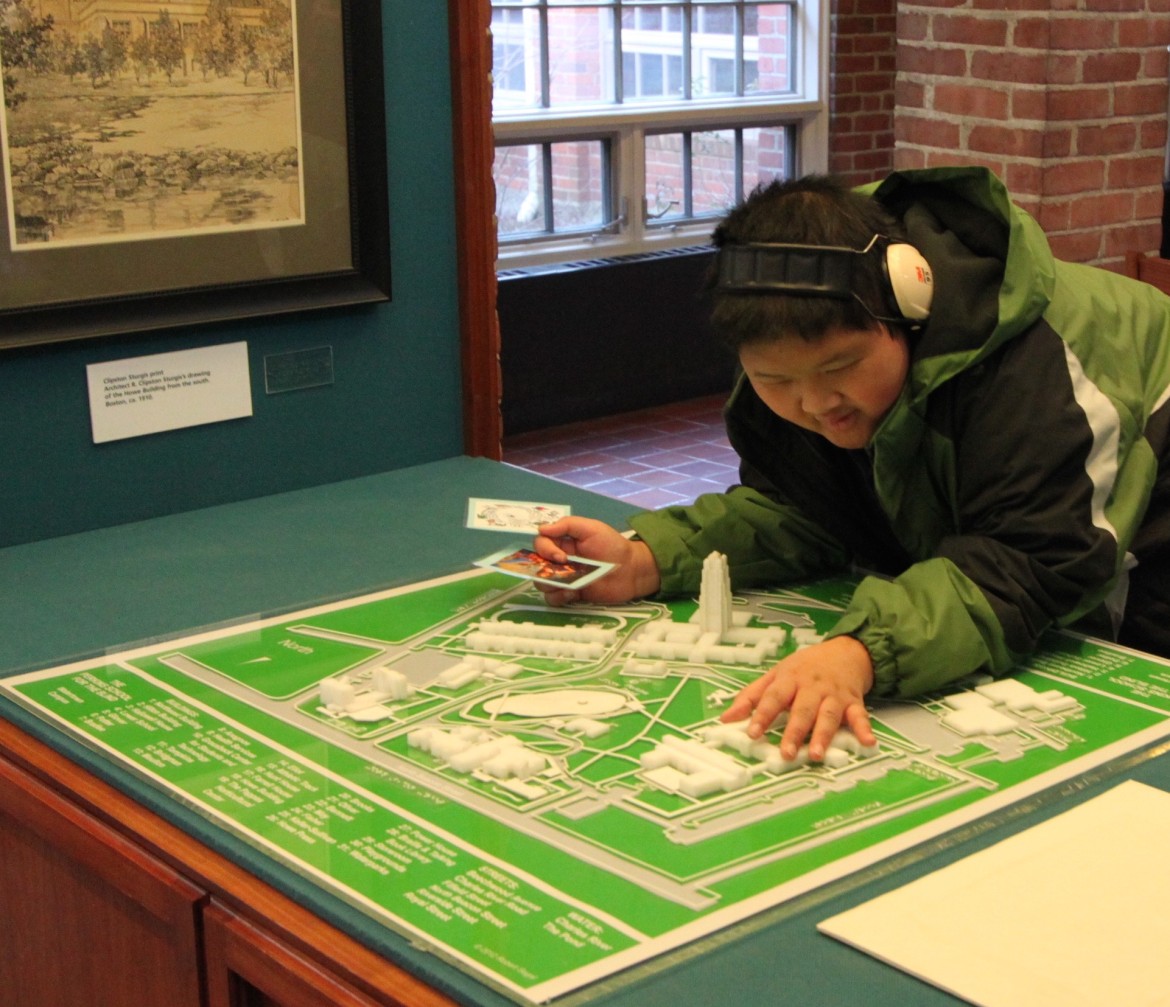
Charlie Breitrose
Watertown State Rep. John Lawn speaks with a student at Perkins School for the Blind during Legislator’s Day.
State representatives and senators from around Massachusetts got a closeup look at what goes on at Perkins School for the Blind this week on Legislator’s Day.
The Watertown-based school and Massachusetts Association of 766 Approved Private Schools (MAAPS) invited elected officials with students who attend the school to visit campus on Tuesday.
Among those who attended were Watertown’s state representatives – John Lawn and Jonathan Hecht – as well as Speaker of the House Robert DeLeo. They got to meet students and visit classrooms to see what Perkins students are learning.
Perkins School for the Blind does not just teach students the academic subjects, Power said, they also teach students how to live independently after they leave Perkins.
“Every class session includes social skills, self-determination and assisted technology,” Power said.

Charlie Breitrose
Watertown State Rep. Jonathan Hecht and other legislators learned about what goes on at Perkins during Legislator’s Day.
The students coming to Perkins and other specialized school in 2016 are different from those from 10 to 15 years ago, said Jim Major, executive director of MAAPS.
“More and more students are coming with complex and challenging disabilities,” Major said, who added that the number of students have with autism, communication impairments and other health and emotional impairments has increased by 41,000 since 2003.
Cara Coller and her family moved from Florida to Watertown in 2013. Her 9-year-old daughter – who is legally blind – started at Hosmer Elementary but later moved over to Perkins. The change since she started attending the school has been dramatic.
“When she came she couldn’t read, she could barely talk and she was unable to feed herself,” Coller said. “Now she is independently walking through campus with her cane.”

Charlie Breitrose
A Perkins School for the Blind students explores a 3D map of the school campus in the Howe Building.
Perkins, like other private schools providing services for special needs students, cannot pay for everything from the tuition charged to districts where the students come from, said Dave Power, president and CEO of Perkins. Fundraising covers the rest.
The tuitions are set by state officials, Power said.
“State funding is critical, but really tuition does not cover the cost of (the services Perkins provides),” Power said. “We appreciate your help providing kids with the best education possible.”
Major noted that schools like Perkins have trouble holding on to teachers because they are paid on average $21,000 less than public school teachers.
“We lose one-third of our teachers who go onto work in public schools,” Major said.
Rep. Lawn said he is well aware of the good work going on at Perkins and he enjoys visiting campus. He said he will work to provide the funding the school needs.
“Jon Hecht and I have been big supporters of Perkins,” Lawn said. “We are working to make sure state funding appropriate to keep the school running.”
{Note: This story was corrected on March 29 about Cara Coller and her daughter Izzy. The story incorrectly stated they moved to town so her daughter could attend Perkins.}